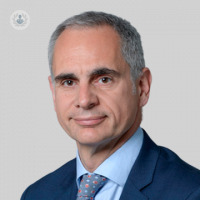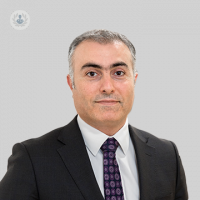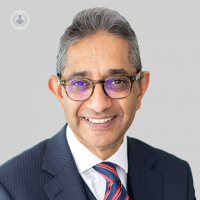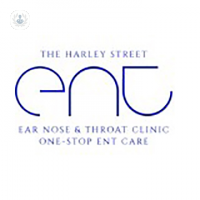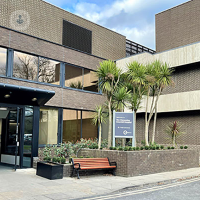Head and neck cancer
Professor Chris Nutting - Clinical oncology
Created on: 06-14-2017
Updated on: 09-19-2023
Edited by: Kate Forristal

What is head and neck cancer?
Head and neck cancer can refer to a number of different types of tumours in various parts of the head and neck, including the mouth, lips, larynx (voice box), pharynx (throat), salivary glands, nose, and sinuses.
Cancer is a disease in which a group of cells in the body malfunction and multiply uncontrollably, forming a mass. This mass of abnormal cell growth is known as a malignant tumour. Cancerous cells continue to grow and divide, avoid programmed cell death, and replace normal, healthy cells, with a tendency to spread and invade other tissues.
Head and neck cancer is relatively uncommon, with around 10,000 cases diagnosed in the UK each year.
Types of head and neck cancer include:
- Mouth cancer
- Laryngeal cancer
- Throat cancer
- Salivary gland cancer
- Nose and sinus cancer
What are the symptoms of head and neck cancer?
They symptoms depend on the type and location of the cancer. Possible symptoms include:
- Lumps or swelling in the neck, mouth or jaw
- Persistent sore throat
- Dysphagia or pain when swallowing
- Hoarseness
- Mouth ulcers that don’t heal
- Changes in your voice
- Earache
- Nosebleeds
Prognosis of head and neck cancer
Like all cancers, head and neck cancers can be fatal if left untreated or treated too late. However, many treatments exist to combat cancer, and curing it is possible in many cases.
What are the causes of head and neck cancer?
Some risk factors vary depending on the type and location of cancer, but smoking and excessive consumption of alcohol are risk factors for most types of head and neck cancer. Exposure to harmful substances, infection with HIV, family history, and gender can also be factors.
Can head and neck cancer be prevented?
The biggest risk factor for head and neck cancer is tobacco consumption. Consuming a lot of alcohol regularly also increases the risk. By cutting down on these, or by stopping smoking and drinking altogether, you can lower your risk of developing cancer. However, there is no 100% guarantee.
Treatments for head and neck cancer
The type of treatment recommended depends greatly on the type and location of the cancer, but some of the usual options for cancer treatment include:
- Chemotherapy
- Radiotherapy
- Surgery – the cancerous cells are cut out surgically, along with a tiny bit of the surrounding, apparently healthy cells, just to be sure the cancer is all gone.
These treatments are often used in tandem to give the patient the greatest chance of eradicating the cancer with the least possible damage to their body.
Which type of specialist treats head and neck cancer?
A number of specialists may be involved in diagnosing and treating head and neck cancer. Oncologists specialist in treating cancer, while ENT surgeons and oral and maxillofacial surgeons may be brought in to operate on the patient, depending on the location of the tumour.








